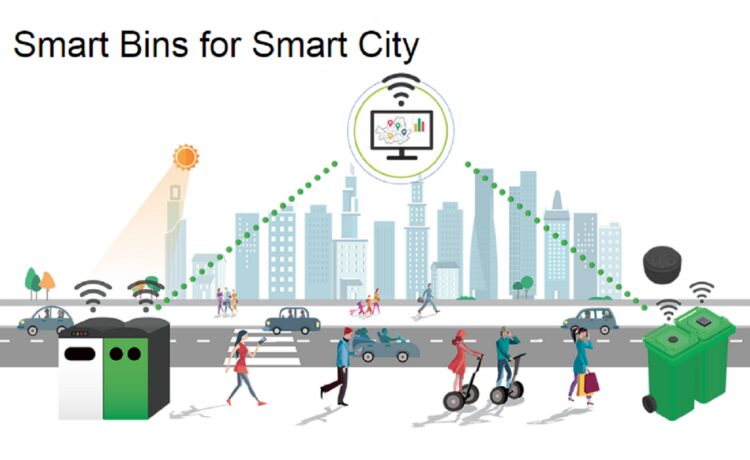Landfills have been the go-to waste removal solution for centuries. They’re convenient, easy to use, and relatively cheap. But with the world’s population growing at an alarming rate, our reliance on landfills is no longer sustainable.
The good news is that several alternative waste removal solutions are beginning to gain traction. These alternatives range from kinetic energy recovery systems to converting food waste into natural gas. Each of these solutions has its benefits and drawbacks, but they offer a more sustainable future for our planet.
This post will look closely at some of the future’s most promising alternative waste disposal solutions. We will also discuss the benefits of each solution so that you can make an informed decision about which solution is right for you.
Current Waste Disposal Solutions And Their Inefficiencies

The world is facing a waste crisis. The amount of scrap we produce is increasing at an alarming rate, while our ability to dispose of it safely and efficiently needs to catch up. This has led to several serious problems, from overflowing landfills to pollution of our oceans and waterways.
Current garbage disposal methods are not up to deal with the sheer volume of scrap we generate. They’re also often environmentally damaging, polluting the air and water we rely on for survival. We need to find better ways to deal with our waste, like an intelligent garbage management system. But what can be done? Let’s find out.
What is Smart Waste Management System?
The term ‘smart waste management’ describes a system that uses efficient technology to process and dispose of garbage in an environmentally friendly way. This system is becoming increasingly popular as it is seen as a cost-effective way to deal with garbage.
There are many different types of smart garbage management systems, but they all share the same basic principle of using technology to reduce the impact of garbage on the environment. One example of this is using sensors to track how much rubbish is being produced and then using this information to adjust the number of resources used to process and dispose of the waste.
Another innovative garbage management system uses RFID tags to track the movement of rubbish from collection points to landfill sites. This helps to ensure that all garbage is disposed of safely and responsibly.
Innovative waste management systems are still in their early stages, but they have great potential to revolutionize how we deal with our rubbish. In time, these systems will become more widespread and help us to reduce our environmental impact even further.
Top Futuristic Technologies To Revolutionize Waste Management

Waste management is a complex and challenging task. It’s essential to keep up with the latest technologies to improve efficiency and reduce garbage. Here are three futuristic technologies that could revolutionize garbage management:
1. Artificial intelligence (AI)
It can help automate many tasks involved in garbage management, including sorting, recycling, and composting. AI can also identify potential environmental hazards associated with each type of waste material and recommend appropriate disposal methods accordingly.
2. AI Robots
Robots have already begun to play an essential role in garbage management by helping humans handle more hazardous materials safely and efficiently. For example, you can use robots to load garbage trucks with heavy loads or move large objects around warehouses.
3. Pneumatic Pipes
These pipes are becoming increasingly popular for garbage management because they allow liquids and gasses to be transported through tubes without any contact between the two substances. This technology has the potential to transform garbage management by making it easier to transport bulky items or liquid wastes across long distances.
4. Solar Trash Compactors
Solar trash compactors use solar energy to compress garbage into small enough pieces so you can burn it instead of dumping it in landfills.
5. Smart Waste Bins
These bins can intelligently detect when they’re full and send an alert to the user so that you can dispose of your garbage in an environmentally friendly way. The bins also have sensors that monitor environmental conditions, such as humidity levels, to ensure proper disposal.
6. Fleet Management
This technology enables businesses to track their fleet of vehicles and manage them accordingly for optimum efficiency and safety. It also allows for real-time monitoring of fuel usage, emissions levels, etc., which helps reduce costs associated with operating a vehicle fleet.
7. Plasma Gasification
It is a process that uses high-temperature plasma to break down the garbage into elements such as hydrogen and carbon dioxide. This technology has the potential to revolutionize garbage management by creating energy from the waste itself, eliminating the need for landfills or incinerators.
Plasma gasification also has other benefits, including reducing greenhouse gas emissions and improving air quality. Plasma gasification can even be used to create biogas, which can be used to power vehicles or generate electricity.
Benefits of Implementing a Smart Waste Management System

There are many benefits to implementing a smart waste management system, including reducing environmental impact and improving safety. Here are five of the most important reasons why you should consider investing in this technology:
1. Reducing Environmental Impact
A smart waste management system can reduce environmental impact by automating routine tasks like sorting and recycling. It can also help identify and prevent potential pollution incidents before they happen.
2. Improved Safety
A smart waste management system can improve safety by tracking hazardous materials throughout the manufacturing process and routing them away from sensitive areas if necessary. This helps ensure that your facility is safe for employees and customers alike.
3. Increased Efficiency
A smart waste management system can save time by automating repetitive tasks such as data entry or reporting processing. In addition, it can optimize resources so that they’re used more effectively overall, leading to increased efficiency in your operation.
Conclusion
As we continue to industrialize and urbanize at an ever-increasing rate, the problem of what to do with our waste becomes more pressing. Landfills are becoming overloaded and leaking harmful chemicals into the ground and water supply. Fortunately, alternatives to landfills can help us solve this problem.
Composting, recycling, and incineration are all possible solutions to the garbage problem. Each has its advantages and disadvantages, so choosing the right solution for each situation is crucial. With a little effort, we can make a huge difference in how we deal with our waste.




![Are You one of Attractive Guys with Low Self Esteem? [2023] he is one of attractive guys with low self esteem](https://selfoy.com/wp-content/uploads/2020/08/4-3.jpg)


